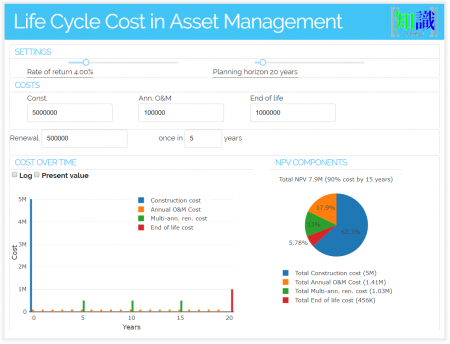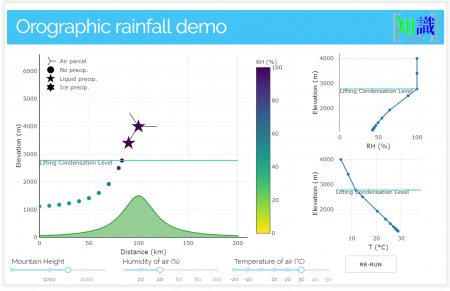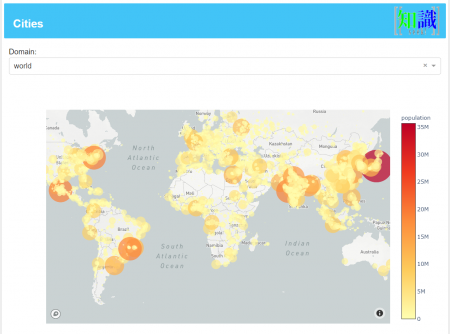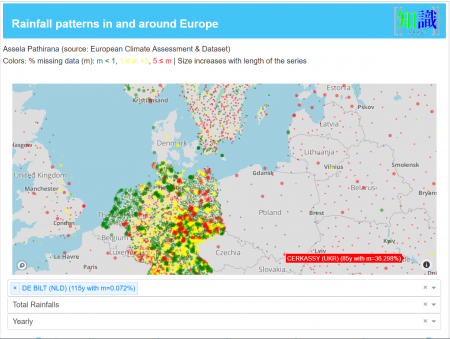Difference between revisions of "Webapps with python"
From assela Pathirana
Jump to navigationJump to search
| Line 11: | Line 11: | ||
[[File:orographic_lifting_tool_python.png|thumb|450px|Atmospheric quantities with orographic uplift [http://oro.wa.pathirana.net/ LINK]]] | [[File:orographic_lifting_tool_python.png|thumb|450px|Atmospheric quantities with orographic uplift [http://oro.wa.pathirana.net/ LINK]]] | ||
===[ | ===[http://citypop.wa.pathirana.net/ Urban population of the world]=== | ||
[[File: | [[File:citypop_tool_python.png|thumb|450px|Urban population of the world. Selected 13000 urban centres from around the world. [https://citypop.wa.pathirana.net/ LINK]]] | ||
Revision as of 12:05, 1 September 2019
Webapps with python
Python has a number of libraries that makes creating graphics based on data. Some of these tools can create interactive graphics and also web applications so that one can allow non-programmers to explore, analyse and visualize data. Ploty Dash is such a library with a particularly easy learning curve.
Here are some prototype applications that were created using this library. I use docker containers based on dokku -- a PaaS (Platform as a Service) --to host these apps.
Life-cycle Costing Tool

Life-cycle cost calculator. LINK
Orographic lift of wind fields - atmospheric quantities calculator

Atmospheric quantities with orographic uplift LINK
Urban population of the world

Urban population of the world. Selected 13000 urban centres from around the world. LINK
